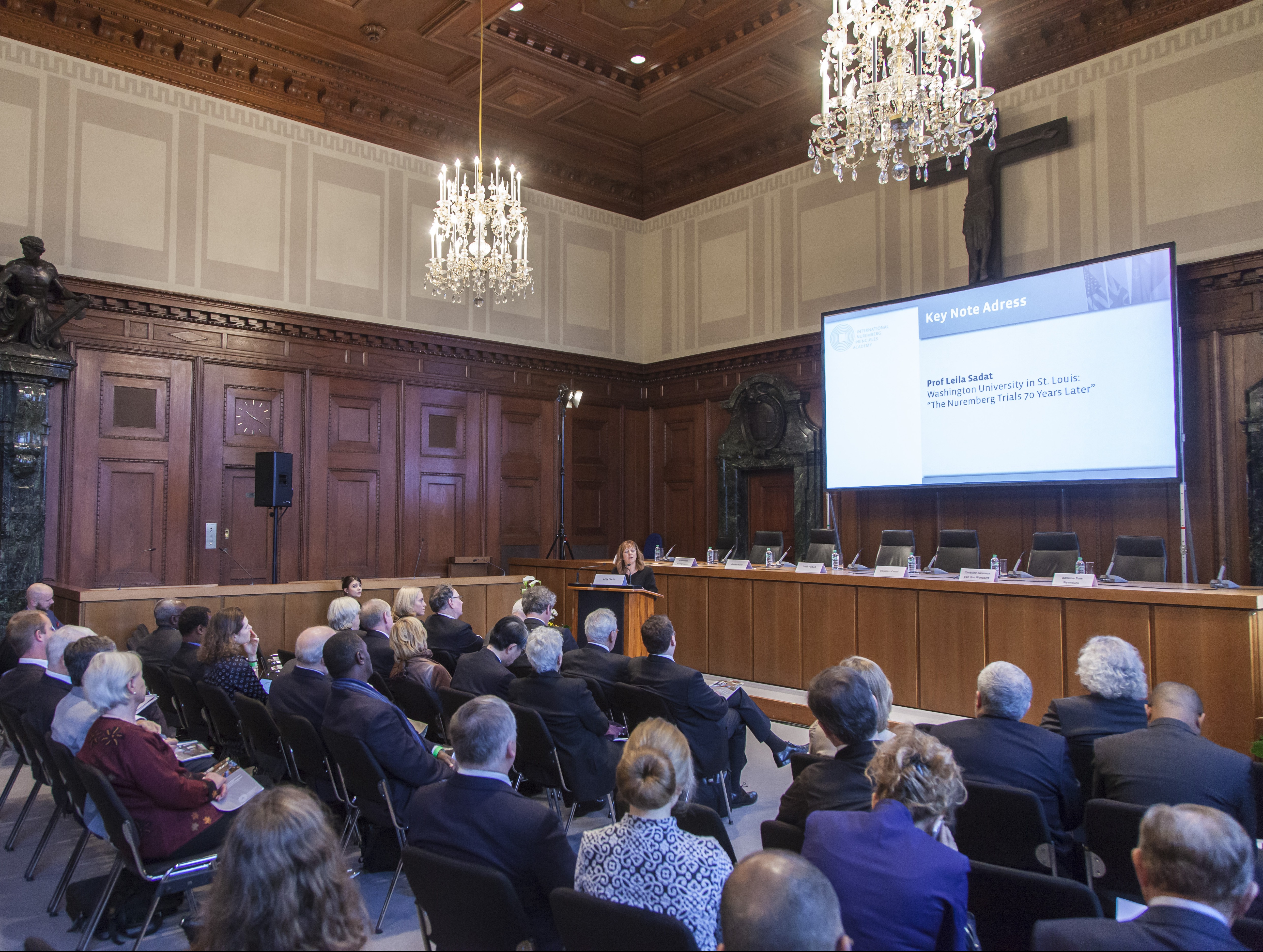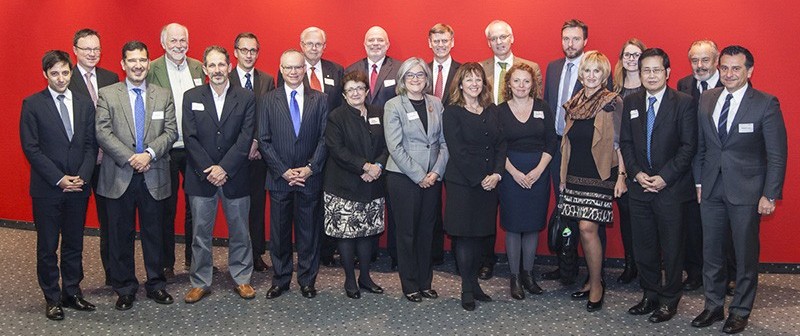By: Leila Nadya Sadat
On November 20-22, 2015, I was in Nuremberg, Germany, at a superb series of events relating to or commemorating the 70th anniversary of the Nuremberg trial. I was asked to give the opening address on the 20th itself, in Courtroom 600, 70 years to the day after the trial began. It was both thrilling and daunting to reflect upon the extraordinary events of 1945 and consider the legacy of the trial 70 years later.

Delivering the opening address in Courtroom 600 where the Nuremberg trial was held 70 years ago.
The organizer was the International Nuremberg Principles Academy, established relatively recently to “promote the legitimacy, lawfulness and acceptance of international criminal law and its application everywhere in the world, and thus to support the struggle against impunity for serious crimes that affect the international community as a whole.” With an impressive leadership team headed up by Founding Director and Deputy Director, respectively, Ambassador Bernd Borchardt and Michaela Lissowsky, and an Advisory Board comprised of international luminaries from every region of the world, the Academy is making a real difference in research, training, consultation and education on human rights and international criminal law issues all over the world. The two days of events included a distinguished panel on the Promotion of Human Rights and International Criminal Law by International and Regional Courts, discussions on the Universality of the Nuremberg principles in Islamic societies and Africa, and workshops on Complementarity, and the Acceptance of International Criminal Justice.
A parallel series of meetings, also convened by the Academy, focused upon the Drafting of a Convention on the Prevention and Punishment of Crimes Against Humanity. Chaired by Sean Murphy, Special Rapporteur on Crimes Against Humanity for the International Law Commission, it was attended by members of the Commission, international and national legal experts in international criminal law, and members of the Crimes Against Humanity Initiative’s Steering Committee, including the author, Ambassador Hans Corell, former Undersecretary General for Legal Affairs at the United Nations and Baroness, H.E. Christine Van den Wyngaert, currently a judge at the International Criminal Court. We spent two days discussing the excellent draft report prepared by Professor Murphy for our meeting, which will inform his next report, and presumably the views of the Commission next summer when it reconvenes.

Participants at the workshop on the Drafting of a Convention on the Prevention and Punishment of Crimes against Humanity.
The commemorative events closed with a joint “Closing Session,” followed by a wonderful performance of an extraordinary play – with live musical interludes – written and narrated in part by Philippe Sands, entitled “A Song of Good and Evil,” which was performed to great effect in Courtroom 600. The play explores the role of two famous international lawyers – Hersch Lauterpacht and Rafael Lemkin – and one infamous Nuremberg defendant, Hans Frank, all brought together in various ways by the cataclysm that engulfed them during the Nazi’s reign of terror from 1933 until Germany’s defeat in 1945.
As the Director of the Whitney R. Harris World Law Institute, with a direct connection to the events and the legacy of 1945-1946, I could not have been more honored to participate, nor more inspired to redouble my own efforts to help create a more just and peaceful world.
